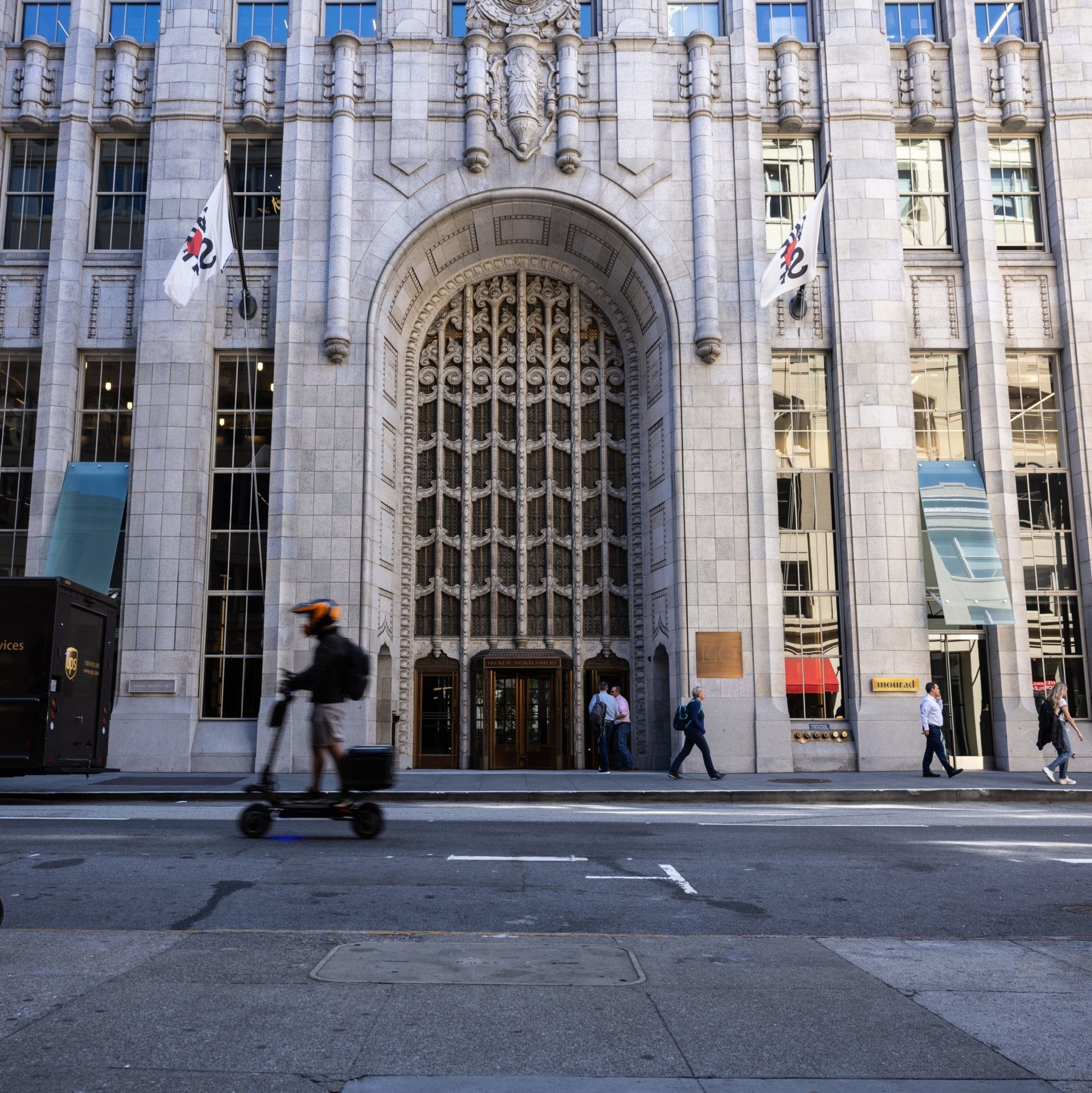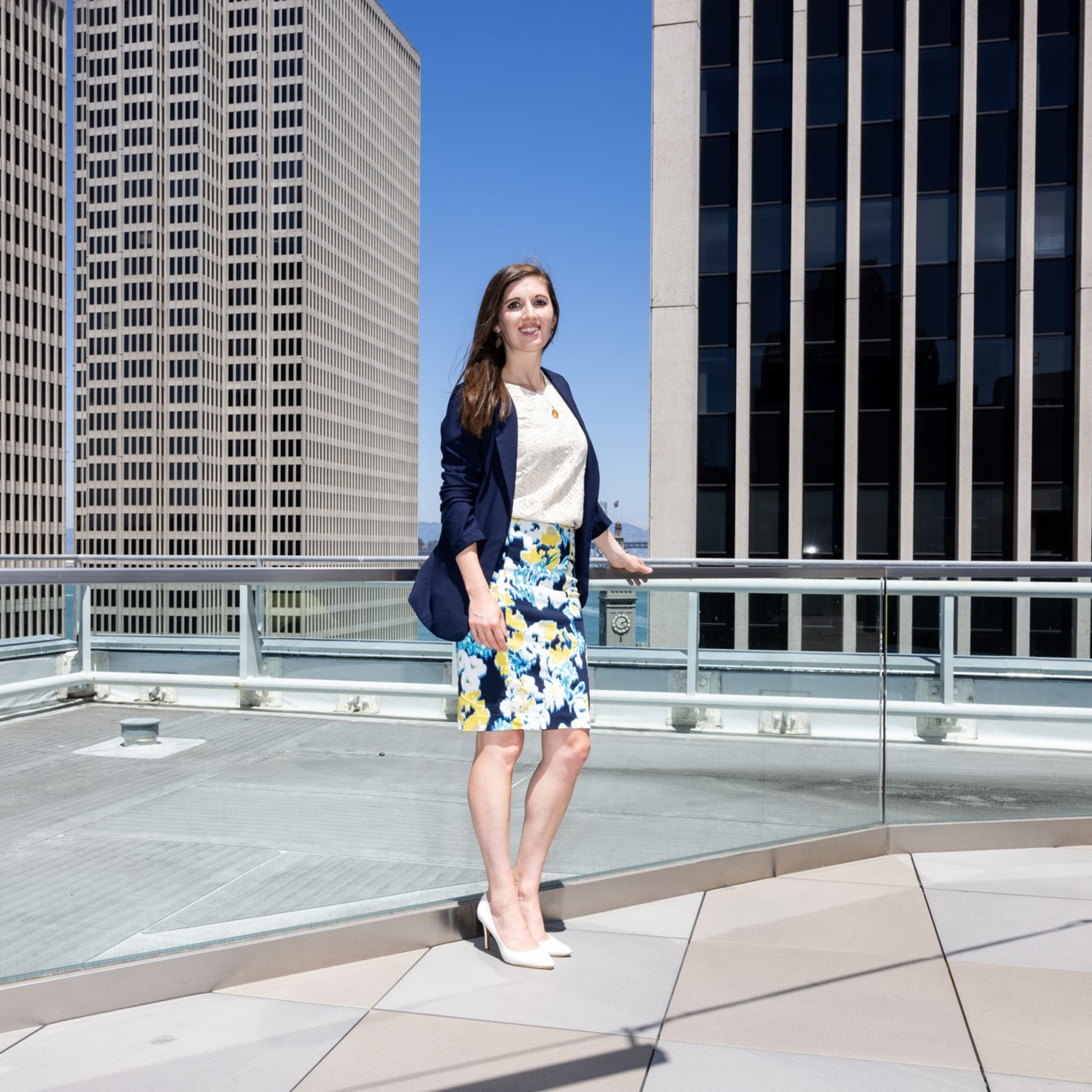It’s just business, the saying goes. When an office building starts losing money in San Francisco, owners are usually quick to cut bait—eager to redeploy their capital toward more lucrative things like AI or multifamily housing.
Rare is the case when someone stays put, invests more money in a property and tries again. But Boston-based real estate firm Pembroke is doing just that with two buildings it acquired a decade ago at peak prices when big tech tenants leasing still dominated the market.
Despite the musical chairs amongst building owners playing out around town in the aftermath of the pandemic, Pembroke stayed committed to its projects, rewarding the tenants who stayed with building improvements and more concierge services.
Three years on, after the likes of Yelp and Twilio vacated their San Francisco properties, leaving them half empty, that effort is starting to pay off. Last month, Capital One closed a deal to relocate its offices from 201 3rd St. to the sixth floor of Pembroke’s 100 California St. building, which comes with a private outdoor roof deck and picturesque views of the Bay Bridge.


At the historic art deco 140 New Montgomery St. tower—which Pembroke paid a then-record $960 per square foot for in 2016—three very different tenants have also recently signed on the dotted line, for a total of 56,000 square feet of new office space, bringing the building’s occupancy rate back up to 82%.
Meanwhile, a Michelin-star sushi chef has reportedly filed permits for a new restaurant (opens in new tab) on the ground floor. If it opens next fall, as Pembroke expects, it would be right next to another award-winning restaurant, Mourad, which held its own Michelin star until 2022.
“We’d obviously rather not have lost tenants in the first place,” said Stacey Spurr, who oversees Pembroke’s three West Coast properties, including one building in Seattle. “But our approach has always been identifying places that stand the test of time. We’re not in the business of picking up or down cycles.”
‘Competing with peoples’ couches’
During a recent tour of the company’s two buildings, Spurr told The Standard that despite its recent challenges, she thinks San Francisco is timeless because it is one of the nation’s few premier waterfront gateway cities.
At 100 California St. the floors on the lower half of the building are move-in ready with flexible rent terms, whereas the top-level floors are blank slates that lend themselves to extensive customizations.
When Pembroke bought the building in 2014, it transformed a typical bike storage space into an “End of Trip” room—mirroring a concept it learned from owning high-end offices in Australia and Sweden, where commuting tenants had access to a decked-out locker room complete with showers to freshen up before going to work.
At 100 California, the amenities even include a special drying closet for bikers’ spandex.


Spurr said that more than ever these days, where tenants have limitless options on the market, landlords should lean into the hospitality aspects of the job.
“I think because the San Francisco office market was so hot for so long, that we’re all still playing catchup with the rest of the world when it comes to [office] amenities,” Spurr said. “But now, we’re no longer just competing with other buildings, we’re competing with peoples’ couches at home. We have to make it so they want to come into the office.”
As its previous tenants slowly filtered out, instead of leaving the floors empty, Pembroke also hosted Black-owned denim design factory Holy Stitch last year at the ground floor of 100 California as a part of the city’s Vacant to Vibrant program, before the local business secured a permanent location in Mid-Market.
Meanwhile, at the 140 New Montgomery building—which opened as The Pacific Telephone Building in 1925—tenants are embracing a new in-house app meant to serve as a one-stop shop for all concierge services and events information.
Gone are the old bulletin board in the lobby or lost email announcements from a facilities manager. “People aren’t going to see those things if they’re not coming in,” Spurr said.

To get more tenants to download the app, Pembroke threw a separate luau and a boba party in the building’s outdoor courtyard earlier this year. Additionally, on the eighth floor of the building, which used to house Yelp’s all-hands meetings, Pembroke now hosts biweekly yoga classes.
“For those who are choosing to come back into the office, we want to create moments of delight and surprise,” she said.
Long-term investors
Since Pembroke’s two primary investors are multinational giants Fidelity Investments and Fidelity International—which together have over $5 trillion in assets under management— Spurr said it is in a position to take a longer-term view and spend the time and money needed to rebuild property values.
“We are long-term investors,” she said, looking up at 140 New Montgomery’s beautifully restored lobby ceiling featuring a motif of a phoenix rising. The building was once San Francisco’s tallest skyscraper and was erected nearly two decades after the devastating 1906 earthquake and fire.
“Even during previous down cycles, we pride ourselves in honoring our commitments,” Spurr said.


In total, Pembroke owns real estate in 13 cities across the globe with an emphasis on central urban locations. Outside of San Francisco, its only other North American holdings are in Seattle, Washington D.C. and Boston. As opposed to larger office landlords, who might have a presence in every other major city, the Fidelity-linked firm is choosier with its spots.
On top of having patient ownership, both 140 New Montgomery and 100 California benefit from featuring unique floor plate designs, ample natural light and proximity to transit, Spurr said. Being in the most prestigious office corridors in the city also helps. As demand for office space has evolved, so has Pembroke’s approach to leasing them.
For example, the entire ninth floor at 140 New Montgomery, which used to be Yelp’s dedicated reception area, is now being remodeled to fit two or three office tenants.
Spurr said she’s noticed more professional services firms looking for new offices these days as big tech has retreated. Even though leasing activity is mostly outsourced to the major commercial real estate brokerages in town, she still makes it a point to show up at every office tour.
“I want to emphasize that we are here and we care,” Spurr said. “The little touches add up.”

In the coming months, 140 New Montgomery will welcome new tenants super{set}, a start-up studio; Heidrick & Struggles, an executive search firm; and Calendly, the scheduling software platform company.
“Being in the heart of downtown San Francisco is evidence not just of our growth but also of our deep love for this city,” said Tom Chavez, founding general partner at super{set}, in a statement.
This month, long-term tenant Bloomberg also renewed its lease.
“Since touring is down these days, responsiveness from [building] owners is incredibly important,” said Matt Shewey, senior managing director at real estate firm JLL, which is assisting Pembroke with leasing up 100 California.
“Tenants don’t want to deal with a change in ownership,” he said. “They want to know you’re going to be committed to the building in the time they are there.”




